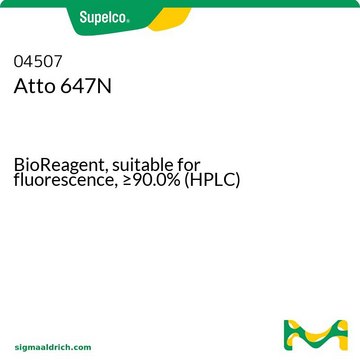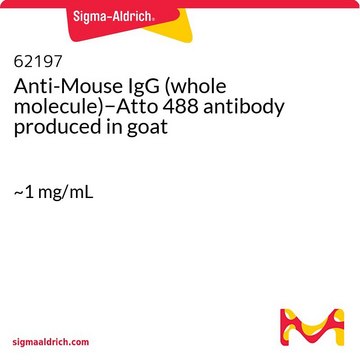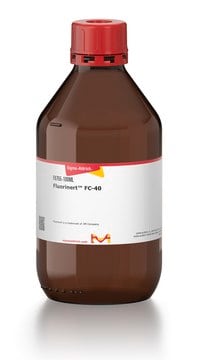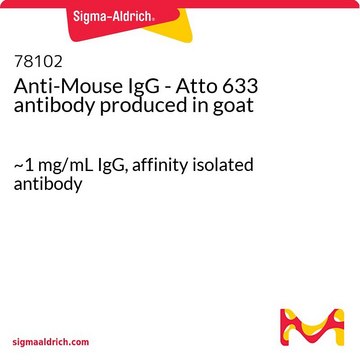43394
Anti-Mouse IgG−Atto 550 antibody produced in goat
1 mg/mL protein
Synonym(s):
Atto 550-Anti-Mouse-IgG antibody produced in goat
About This Item
Recommended Products
conjugate
Atto 550 conjugate
antibody product type
secondary antibodies
clone
polyclonal
form
liquid
contains
50% glycerol as stabilizer
species reactivity
mouse
concentration
1 mg/mL protein
technique(s)
immunofluorescence: suitable
protein array: 2.8 μg/mL
fluorescence
λex 550 nm; λem 576 nm in PBS
storage temp.
−20°C
target post-translational modification
unmodified
Physical form
Analysis Note
Legal Information
Disclaimer
Not finding the right product?
Try our Product Selector Tool.
Signal Word
Warning
Hazard Statements
Precautionary Statements
Hazard Classifications
Eye Irrit. 2
Storage Class Code
10 - Combustible liquids
WGK
WGK 3
Flash Point(F)
Not applicable
Flash Point(C)
Not applicable
Personal Protective Equipment
Choose from one of the most recent versions:
Already Own This Product?
Find documentation for the products that you have recently purchased in the Document Library.
Articles
Immunoblotting (Western blot transfer) is a common technique in modern proteomics research.
Our team of scientists has experience in all areas of research including Life Science, Material Science, Chemical Synthesis, Chromatography, Analytical and many others.
Contact Technical Service






